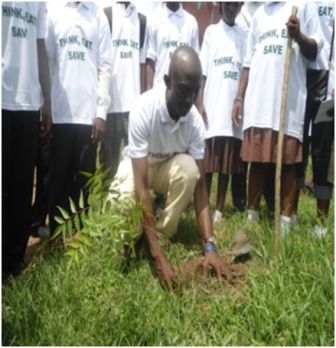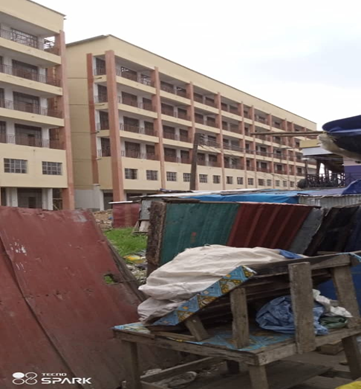Major decline seen in illegal logging
Illegal logging in the world’s forests has fallen by nearly a quarter since 2002, according to what claims to be the most thorough analysis yet. (Photo: Illegal logging can remove vital wildlife habitat, leading to conflict with people )
The London-based thinktank Chatham House says consumer pressure, legal restrictions by importing countries and media attention have all contributed.
Some important forest countries such as Brazil, Cameroon and Indonesia have seen much larger cuts, its report says.
But further improvements will be harder to make, it concludes.
“China is increasingly important [as an importer], but not just for its own consumption,†Sam Lawson Chatham House
The biggest documented falls in illegal timber production have been in Brazil, Cameroon and Indonesia, three of the world’s most heavily forested countries.
Indonesia has seen a drop of 75% in a decade. Cameroon’s figure is 50%, and Brazil is between the two.
Globally, the figure is 22% since 2002.
Sam Lawson, the report‘s lead author, made plain that illegal logging remains a major problem despite these impressive gains.
“That (50-75%) sounds like a lot; but bear in mind that illegal logging was such a bad problem in those countries that even though it’s reduced susbtantially, it still is a bad problem.
“So in Indonesia, for example, 40% of the harvesting is still illegal,” he told BBC News.
Those practising illegal logging include both large, well-funded corporates and smaller, artisanal concerns, the report says.
Banning the baddies
The last decade has seen several initiatives aimed at reducing illegal logging, both in countries that produce wood and those that import it.
Countries signing up to the EU’s Forest Law Enforcement, Governance and Trade (FLEGT) scheme were obliged to supply legally cut timber only, and received in return financial and technical help to make their forestry sustainable.
The US passed an amendment to the Lacey Act, which imposes sanctions on anyone importing timber illegally.
Last week, the European Parliament passed a similar measure.
Such measures are forcing timber companies to operate traceability schemes, whereby every piece of wood can in principle be traced back to its source.
“It’s very encouraging, because it shows we’re on the right track with the FLEGT initiative and our partnership agreements that are increasing the capacity of producing countries to control illegal logging,” said EU Commissioner for Development Andris Piebalgs.
“We really need now to accelerate preparation for the necessary secondary legislation [to implement the EU illegal timber ban],” he told BBC News
The Chatham House report says it is time for Japan, as the country that imports the highest per-capita amount of illegal wood, to pass similar legislation.
But other Asian countries are of equal concern.
“China is increasingly important [as an importer], but not just for its own consumption,” said Mr Lawson.
“It is increasingly acting as a processing country, the factory of the world; so a lot of the illegally sourced wood that ends up in Europe and the US passes through Chinese factories.”
Chatham House urges China, along with fellow “factory of the world” Vietnam, to ban illegal timber imports and mandate a policy that all timber used in government projects is shown to be legally sourced.
“These are the two steps that have been proven to be most effective in consumer countries,” he said.
Legal remedies
In timber producing countries, factors that have proven to be preconditions for tackling illegal logging are political stability and the effective rule of law.
This raises concerns about some important forest nations not covered in the study, such as Madagascar and the Democratic Republic of Congo.
Legal and illegal logging opens up forest roads that lead to more impacts
The best counter, said Mr Piebalgs, is “to demonstrate with positive examples that countries benefit a lot if they move out of illegal timber.
“Countries with with well-managed resources will have much more money for development.”
However, making future improvements of the scale seen in this report will not be straightforward, said Sam Lawson.
Many of the “low-hanging fruit” have already been tackled.
Meanwhile, the report found that media coverage of illegal logging is declining – partly because of the improvements seen, and partly because many campaign groups have moved on to other issues, notably climate change.
The UN climate process does have the potential to curb deforestation, by rewarding developing countries financially for protecting their forests.
Increasingly, people in the field are arguing that money ought to go first into developing effective governance regimes.
By Richard Black, BBC News
Stay with Sierra Express Media, for your trusted place in news!
© 2010, https:. All rights reserved.






